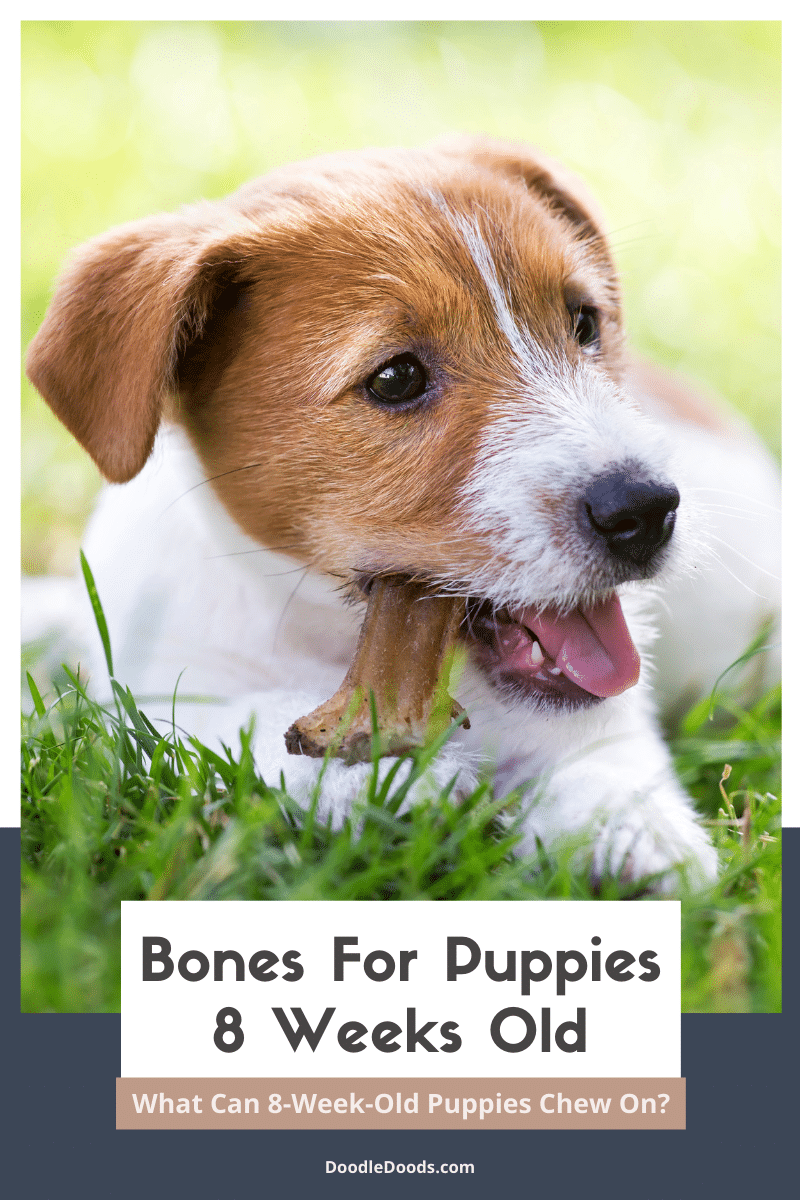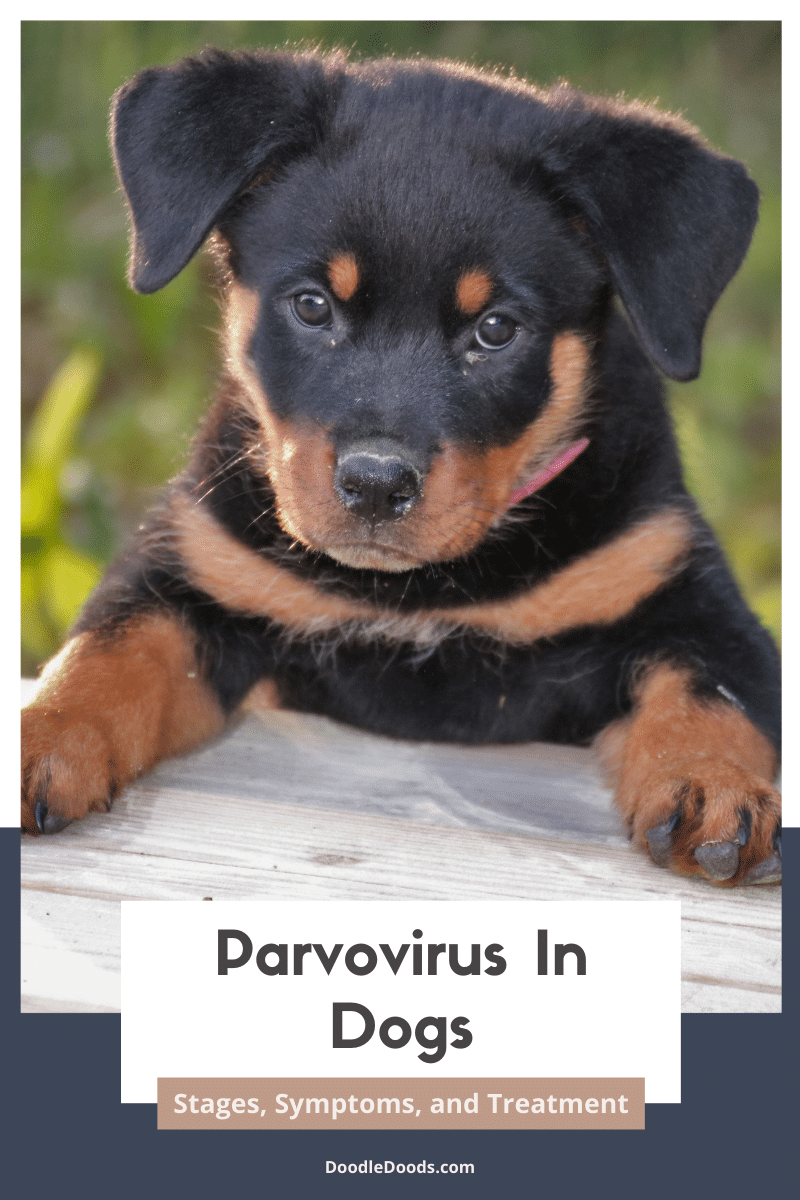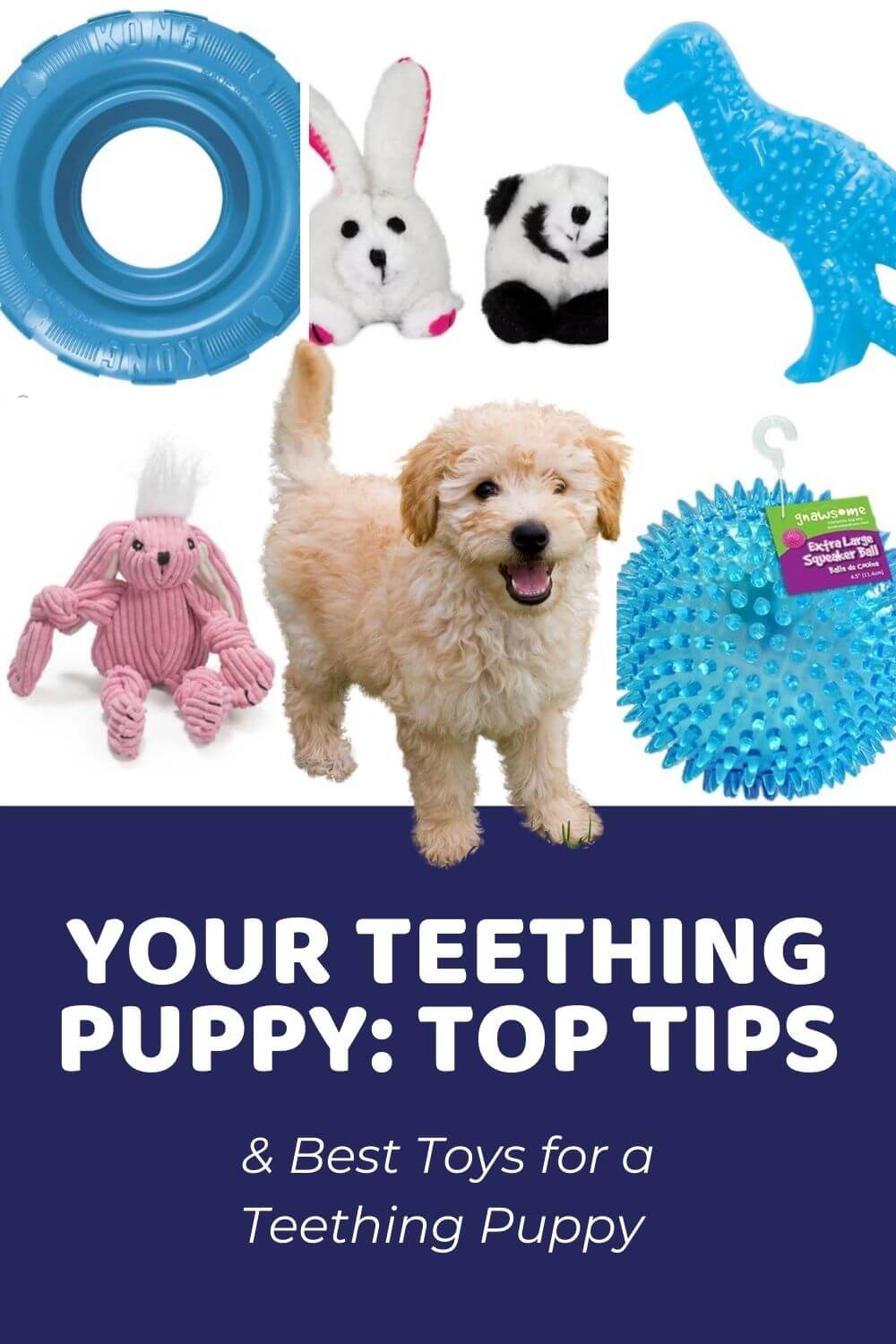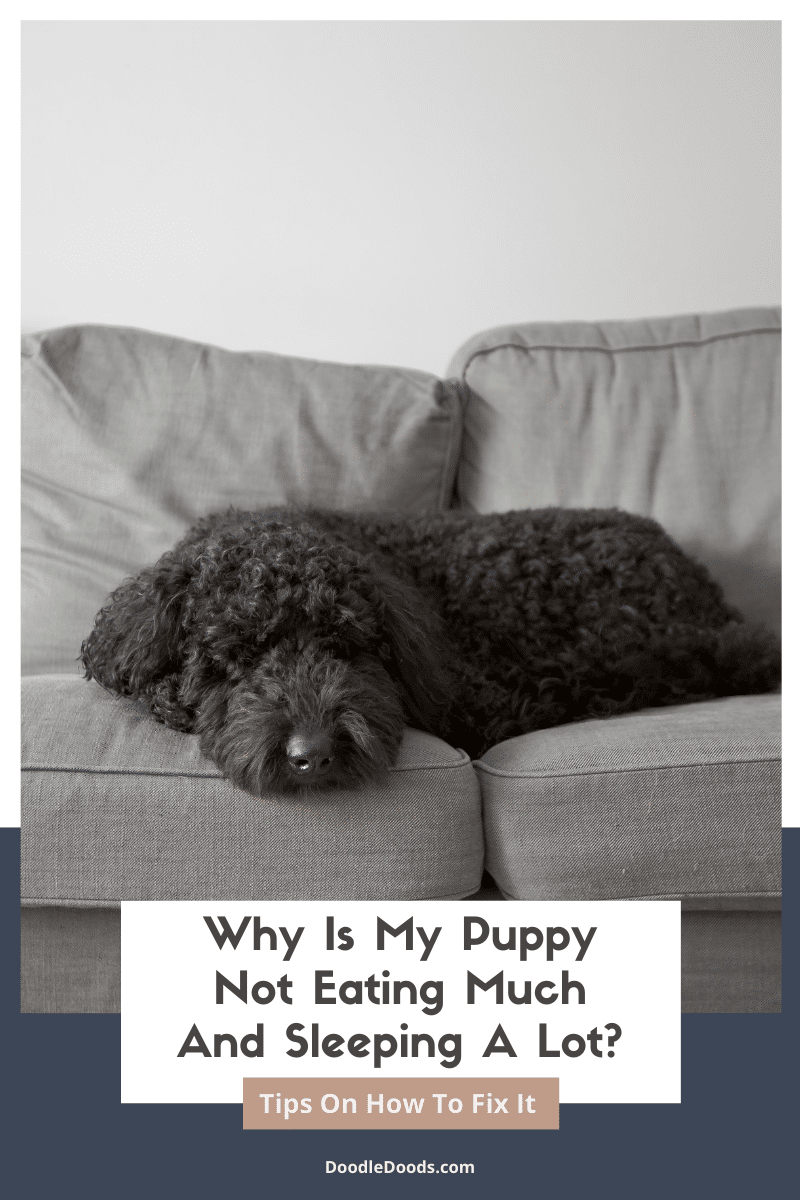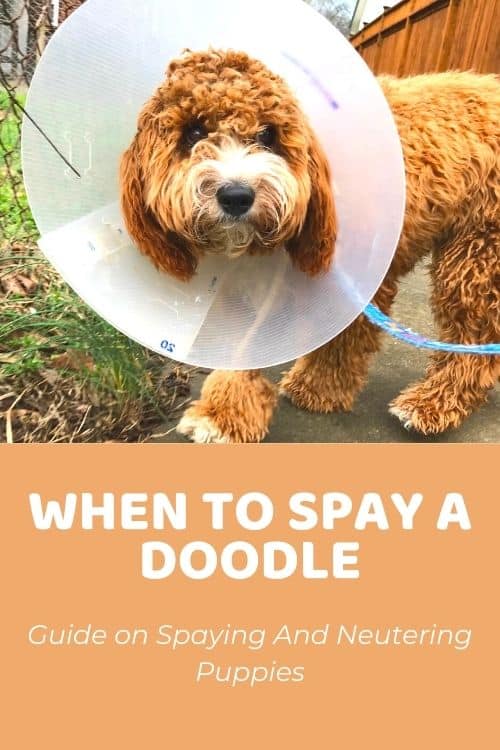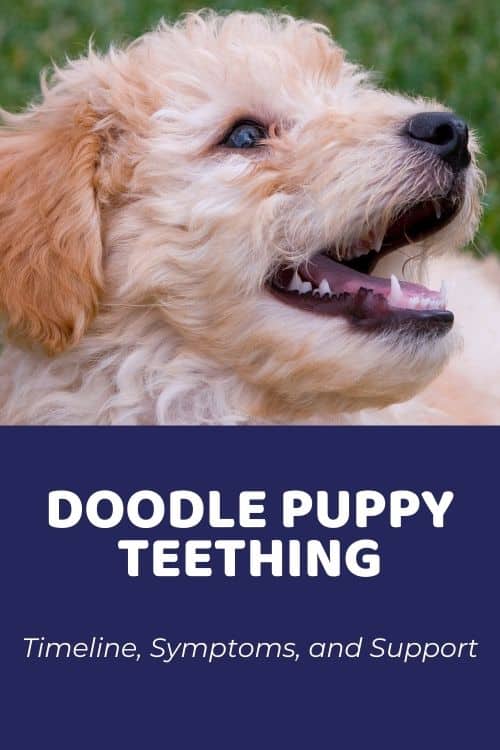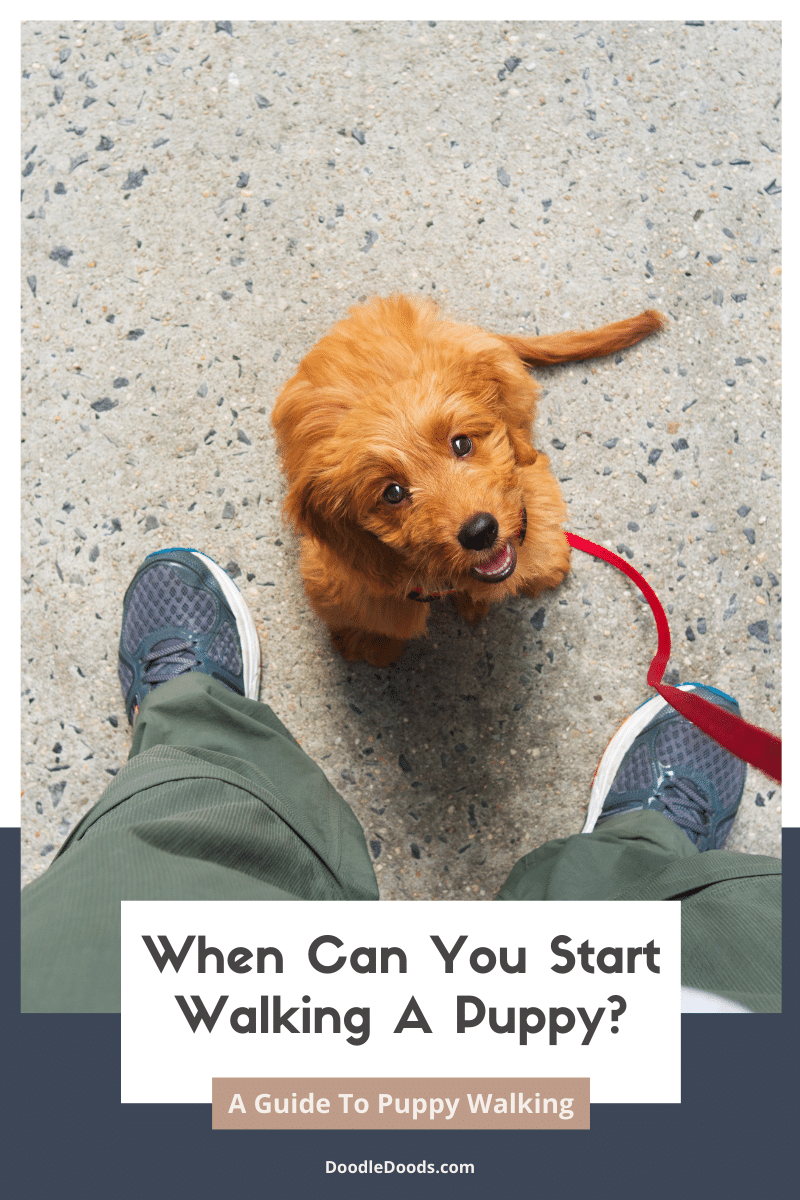Giving bones for puppies 8 weeks old is a controversial topic. On one hand, we’ve always heard how dogs love to chew on bones and it’s one of the most natural and cheapest ways to provide them with some mouthy enrichment and a tasty experience. On the other hand, there’s more and more talk about bones being unsafe for both adult dogs and puppies. So which is it? Keep on reading to learn more about this important topic, so you can make sure that your young pup has a healthy start to the rest of their life by your side.
Table of Contents
- Bones For Puppies 8 Weeks Old: Intro
- Can My 8 Week Old Puppy Have A Bone?
- At What Age Can Puppies Chew Bones?
- Here’s What You Should Know About Puppy Teething
- What Can 8 Week Old Puppies Chew On?
- Are There Any Advantages Of Giving Bone To Puppies?
- How Can I Make Sure Bones Are Safe For My Puppy?
- What Are Chew Alternatives To Bones For Puppies?
- What Are Recreational Bones?
- Bones For Puppies 8 Weeks Old: FAQs
- Bones For Puppies 8 Weeks Old: Final Thoughts
Bones For Puppies 8 Weeks Old: Intro
Regardless if you’re a novice dog owner or have had dogs your whole life, you’ve probably heard that bones are the most natural things for dogs to chew on. However, in recent years we’ve heard more and more about how bones might not be the best choice after all. Additionally, there’s also the debate whether the bones should be raw or cooked.
Indeed, there are so many things to consider before giving anything to your puppy! But don’t fret, as long as you’re well educated and have done your due diligence, you can rest assured knowing that your canine best pal is getting the right nutrition.
In this article, we’re going to take a closer look into the topic of giving bones for puppies at 8 weeks of age, as well as discuss some of the most appropriate things for them to chew on. By the end of this guide, you’ll know exactly how to proceed!
Can My 8 Week Old Puppy Have A Bone?
Bones for puppies at 8 weeks old is generally not recommended. Puppies have delicate teeth that can easily break or crack when they chew on hard bones. That’s especially true for 8 week old puppies, as they only have their first set of baby teeth and they’re a few months away from getting their much stronger adult teeth.
Your next question might be – what about cooked bones then? Well, that’s even worse, as you should never give cooked bones for 8 week old puppies nor full-grown dogs. The risk of splintering is far too great, and it can lead to very severe health complications.
What you can do instead is to give your pup softer puppy-specific chew toys that are designed to be gentle on their developing teeth and jaws. As your pup grows older and their teeth become stronger, you can consider introducing certain appropriate bones for them to chew on. Just make sure to always supervise your dog while they enjoy their bone to prevent any choking hazards or injuries. We also recommend that you consult this with your vet before providing bones for your 8 week old puppy, as they might not even be suitable for your precious pooch.
At What Age Can Puppies Chew Bones?
Puppies can usually start chewing on bones when they’re around 4 to 6 months old, the earliest appropriate time is generally around 12 weeks of age. At this age, their baby teeth have likely fallen out, and their adult teeth are coming in, making it safer for them to chew on harder items like bones.
Just to be on the safe side, you should wait until your puppy has gotten a full set of their 42 adult teeth. This way, you can be absolutely sure that they have all of their strong adult teeth that can actually safely gnaw on bones.
Of course, it’s also essential to choose the right kind of bone for your puppy. Opt for size-appropriate, non-splintering bones. For instance, cooked bones and small chicken or fish bones are total no-gos for dogs and puppies.
But we must say, it isn’t exactly necessary to give your puppy or adult dog bones at all. As it’s often the case, this is more of an old wives tale that’s been around for as long as we’ve had domesticated canines. Bones can pose serious health risks to our four legged companions and there are much better alternatives for you to consider. We’ll discuss these in a moment, too!
Here’s What You Should Know About Puppy Teething
As we’ve established, one very important stage in puppyhood is the teething stage. We’re not going to lie, it can be quite dreadful for both your puppy and yourself, as it often comes with discomfort and other unpleasant symptoms for your little pal. And you’ll be the one who has to deal with it all whilst comforting your little pooch!
But if you know exactly what to expect during this life stage, you can provide your pup with the right support, helping them transition smoothly into adulthood with a healthy set of teeth and good chewing habits. And soon enough, this dreaded phase has passed!
So, here’s what you should know about puppy teething to help your furry friend navigate this crucial stage of their development:
Teething Timeline
Puppies begin teething around 3-4 weeks of age when their baby teeth start to emerge. By 5-6 weeks, most puppies have a full set of 28 baby teeth. They’ll then start losing these baby teeth around 3-4 months old, making way for their 42 adult teeth. These should all be in place by the time they’re around 6-8 months old.
Signs Of Teething
During the teething process, your puppy may experience discomfort, soreness, and swollen gums. Naturally, to soothe their discomfort, puppies tend to start chewing anything in sight. You might also find some baby teeth around your home as they fall out. It’s also not uncommon for puppies to get a small fever and lose their appetite during this life stage.
Soothing The Discomfort
To help alleviate your puppy’s teething discomfort, provide them with safe, soft chew toys specifically designed for teething puppies. You can also offer frozen treats or wet a washcloth, twist it, and freeze it for your puppy to chew on, as the cold can help numb their gums. What’s more, you can also use a puppy teething gel and rub it on their sore and inflamed gums.
Chew Toy Variety
Offer a range of chew toys with different textures and shapes to keep your puppy engaged and satisfy their urge to chew. Make sure to choose toys that are size-appropriate, puppy-safe, and durable enough to withstand your puppy’s constant chewing.
Discouraging Inappropriate Chewing
If your puppy starts chewing on something they shouldn’t, redirect their attention to an appropriate chew toy. Consistently reinforcing good chewing habits will help prevent destructive behavior in the future. The longer you let your puppy chew on everything and anything in sight, the harder it will be to get rid of this unwanted behavior in the future!
Dental Care
Begin a dental care routine early on to ensure your puppy maintains good oral health. Regularly brush their teeth with dog toothpaste (one that’s specially designed for canines!) and a soft-bristle dog toothbrush, and consider providing dental chews or toys designed to help clean their teeth.
What Can 8 Week Old Puppies Chew On?
You might be wondering now – what can 8 week old puppies chew on? If bones are out of the question, it might seem like the options are rather limited. At 8 weeks old, puppies are still in the early stages of teething and need appropriate chew options considering their life stage and size.
So, instead of reaching for bones for 8 week old puppies, here are some much better alternatives that young puppies can safely chew on:
- Puppy-safe chew toys: Choose chew toys that are specifically designed for puppies, as they tend to be softer and gentler on their delicate baby teeth and somewhat sore gums. In fact, there are even some chew toys that are specially made for teething puppies!
- Puppy-safe edible chews: You’ll also be able to find edible puppy-safe chews that are not just tasty, but also provide that nice soothing sensation to your pup’s inflamed gums. For example, look for puppy teething rings or pup-safe rawhide chews. This is also a great way to keep your pup entertained and stimulated to get their mind off the discomfort. Make sure you opt for chews for puppies under 3 months and that it’s explicitly stated on the packaging!
- Interactive toys: Toys like treat-dispensing toys or puzzle games will most certainly keep your puppy entertained while also satisfying their urge to chew. Again, these are excellent for both mental enrichment and getting in that soothing action. By the way, you can also freeze some of those treat-dispensing toys, which is another great way to soothe your puppy’s teething pain and discomfort.
Are There Any Advantages Of Giving Bone To Puppies?
Although you shouldn’t be feeding bones for puppies at 8 weeks old, later on they might be a good way for your pup to get some enrichment into their little lives. Indeed, there are some advantages to giving bones to puppies, but it’s important to wait until they’re old enough (around 4-6 months) and to choose the right type of bone. Nonetheless, whether or not the pros outweigh the cons is up to you and your veterinarian.
But back to the main question – here are some benefits of a puppy getting to chew on a bone:
- Dental health: Chewing on bones can help remove plaque and tartar from your puppy’s teeth, which promotes better oral hygiene and prevents dental issues.
- Mental stimulation: Chewing is one of the most natural things for dogs and puppies, so giving them a bone can be a great way to keep them entertained and mentally stimulated.
- Chewing satisfaction: Needless to say, bones can help satisfy your puppy’s natural urge to chew. This in turn can help prevent destructive chewing behaviors that are often targeted on your household items or even your limbs.
- Nutrition: Some bones, such as raw meaty bones, can provide additional nutrients like calcium and phosphorus that are essential for growing puppies. On the other hand, high-quality puppy food formulas usually contain a good complex of essential vitamins and minerals, so a bone isn’t exactly necessary for this reason.
How Can I Make Sure Bones Are Safe For My Puppy?
Obviously, if you’re planning on giving chews for an 8 week old puppy or bones for a bigger pup, following the right safety guidelines is vital. Here are some things you should consider:
Make Sure Your Puppy Is Old Enough To Chew On A Bone
Start giving bones to your puppy when they’re around 4-6 months old, not any earlier! By this time, their baby teeth have likely fallen out and adult teeth have started to emerge. Ideally, you should wait until your puppy has grown into all of its adult teeth, as these are strong enough to chew on tough bones.
Choose The Right Type Of Bone
Make sure you opt for a bone that’s appropriate considering your pup’s size. For example, larger breeds can chew on larger bones, whereas smaller breeds should munch on smaller bones. In addition to that, make sure that they’re non-splintering bones and safe for dogs to chew on. Avoid small, brittle bones that can easily break into sharp fragments, such as chicken or turkey bones. Also, never give them cooked bones, as they can splinter and cause severe intestinal injuries.
Keep An Eye On Your Pup’s Chewing Sessions
Always monitor your puppy while they’re chewing on a bone to prevent choking hazards, injuries, or ingestion of bone fragments. It’s especially important that you don’t let your puppy chew the bone into small fragments. If this happens easily, it’s time to chuck it in the bin.
Inspect The Bone
To elaborate on the previous point, don’t forget to regularly check the bone for any signs of breaking, cracking, or splintering. Again, if you notice this happening, immediately get rid of the bone.
Limit Chewing Time
Don’t allow your puppy to chew on a bone for too long and limit bone-chewing sessions to about 10-15 minutes. Afterwards, make sure to check the bone for any signs or splintering or cracks.
Make Sure To Store Bones Properly
After a chewing session, clean the bone with water and store it in a sealed container in the refrigerator to keep it fresh and prevent bacterial growth. You should throw away the bones after about 3-4 days to prevent bad bacteria harming your pup.
Consult With Your Vet
If you’re unsure about the best type of bone for your puppy or have concerns about their health, consult your veterinarian for guidance. They’ll be able to assess whether or not a bone is actually suitable for your little pal.
What Are Chew Alternatives To Bones For Puppies?
There are several chew alternatives to bones for puppies at 8 weeks old that can provide similar benefits in terms of dental health, mental stimulation, and chewing satisfaction. These include:
- Teething toys, such as the ones we recommend in this guide;
- Edible chews that are safe for puppies;
- Chew toys that are specially designed for young puppies;
- Treat-dispensing toys that you can also place in the freezer – this is an excellent method for soothing the painful gums as well;
- Plush toys, rope toys, and squeaky toys. You’ll find some great recommendations for puppies in this guide.
If you’re looking for good quality chews for puppies under 3 months of age, then below you’ll find two of our favorite products to try out.
Barkworthies Puppy Variety Pack Natural Dog Chews
Barkworthies Puppy Variety Pack Natural Dog Chews is the perfect value pack of chew sticks for puppies under 3 months old. These are all natural alternatives to rawhide, and they’re made from responsibly sourced high-quality ingredients. All of these treats are the perfect size for puppies and they’re completely grain-free and rawhide-free.
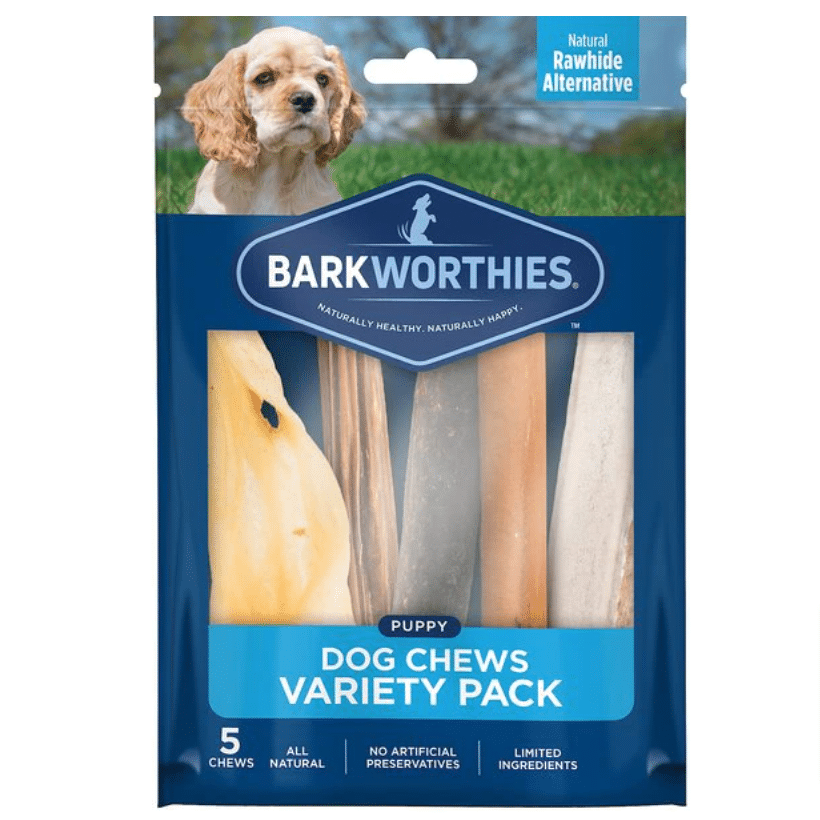
In this pack you’ll find:
- Odor free single-ingredient bully stick that has a rich beef flavor. By the way, it also helps scrape away plaque and tartar!
- Single-ingredient gullet stick that’s made from high-quality and free-range beef. It also has a nice texture to it that helps massage those itchy and sore teeth and gums.
- Rabbit roll for sensitive pups – this one’s specially made for puppies with food sensitivities. You can also break this into small pieces and use it as a training treat.
- A real, full-sized lamb ear that’s baked to perfection. This is another single-ingredient chew that’s excellent for sensitive tummies.
- Split elk antler for more avid chewers. This is a long-lasting chew that’s perfect for teething puppies that just can’t stop gnawing on stuff.
N-Bone Puppy Teething Rings Chicken Flavor Dog Treats
N-Bone Puppy Teething Rings are another top choice for teething puppies. These long-lasting chews are rich in nutrients like omega fatty acids from fish oil, natural probiotics for proper digestion, calcium for teeth and bone health, and even the superfood turmeric. They’re also packed with protein, which is essential for growing puppies.
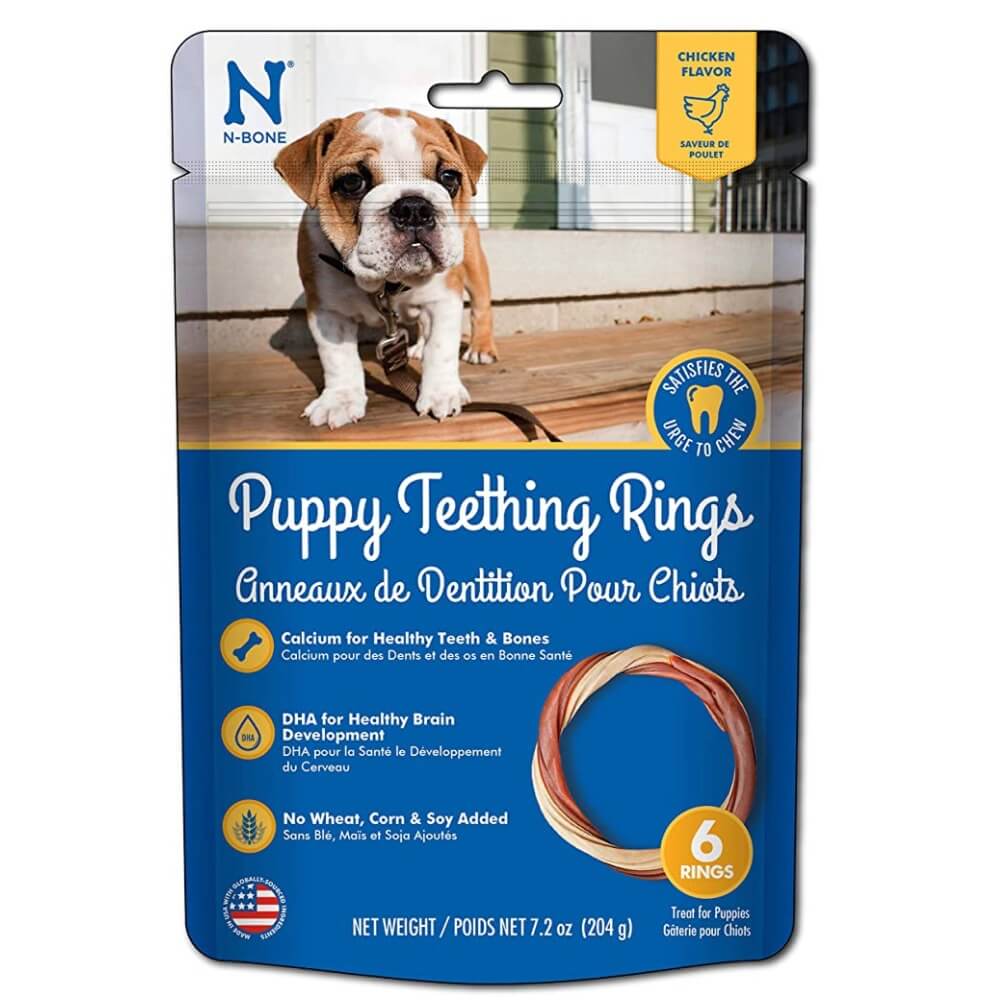
Moreover, these puppy teething rings have a rich chicken flavor that’ll keep your pup chewing for longer. Don’t worry though, it’s a completely natural chicken flavor that’s been used!
What Are Recreational Bones?
Essentially, recreational bones are bones that we give to dogs for their enjoyment, mental stimulation, and dental benefits. These bones are typically larger and more robust, allowing dogs to gnaw on them for extended periods of time without breaking or splintering as easily.
Some examples of recreational bones include:
- Beef knuckle bones: These large, sturdy bones are ideal for aggressive chewers and can provide hours of entertainment.
- Marrow bones: Found in the leg bones of large animals like cows or bison, marrow bones have a hollow center filled with nutrient-rich marrow. While the marrow provides some nutritional value, the primary purpose of these bones is for chewing enjoyment.
- Beef rib bones: These long, flat bones can be a good option for some dogs, offering a satisfying gnawing experience. However, rib bones are usually more delicate, so the only ones acceptable are very large and uncooked beef rib bones.
Nonetheless, keep in mind that these types of bones are not recommended for young puppies, especially if they haven’t gotten all of their adult teeth yet. Recreational bones are more suited for grown dogs. And even then, you must follow proper safety cautions.
Bones For Puppies 8 Weeks Old: FAQs
Bones for puppies at 8 weeks old are not recommended. In fact, you shouldn’t give any bones to your puppy until they’ve gotten all of their adult teeth. That’s because bones are very tough and hard to chew on, and your puppy’s baby teeth aren’t as strong and developed for these types of chews. However, once your puppy reaches the appropriate age (about 4-6 months old), you can give them non-splintering and uncooked raw bones. You should also avoid small, brittle bones like poultry bones and fish bones.
Safe chews for puppies include durable rubber chew toys, teething toys, puppy-safe chews and treats, and treat-dispensing toys. Always choose puppy-specific options and keep an eye on your pup during chewing sessions to ensure safety.
No, you should not give bones to a 2-month-old puppy. Wait until they’re around 4-6 months old when their baby teeth have fallen out and adult teeth have started to emerge before introducing appropriate bones for chewing.
No, puppies should never eat cooked bones. Cooked bones can splinter and cause serious injuries to your puppy’s digestive system. Always provide raw, size-appropriate bones for safe chewing. The same goes for adult dogs – never give your full-grown dog cooked bones, as these can pose very big risk to their health.
Dogs should not eat cooked bones, small or brittle bones (like poultry or fish bones), and bones that can easily splinter (such as pork rib bones). These can pose choking hazards or cause injuries to the digestive system.
Bones For Puppies 8 Weeks Old: Final Thoughts
Even though bones for puppies 8 weeks old aren’t recommended, there are plenty of safe and suitable alternatives to satisfy their natural chewing instincts. And as your puppy grows, you can gradually introduce size-appropriate raw bones to support their dental health and overall well-being. We hope this guide has been a helpful resource so that you can make an educated decision before giving your young puppy any bones or chews to gnaw on. Above all, make sure to opt for puppy-safe options, supervise your pup’s chewing sessions, and consult with your vet beforehand. This way, you can ensure your puppy’s safety and support their little growing bodies appropriately.
Want to Learn
DIY Doodle Grooming?
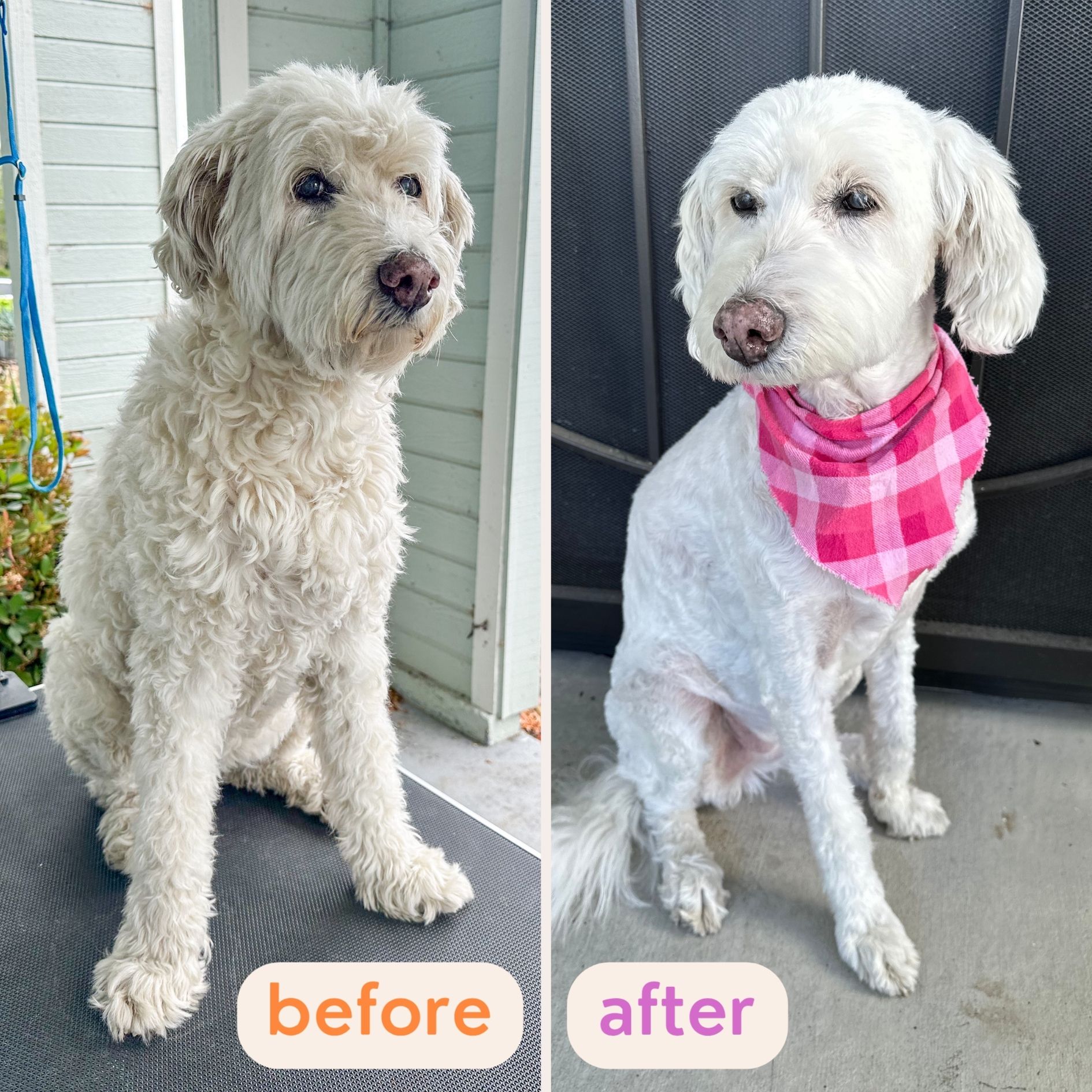
 “Every concern and question I had now has clear, practical solutions.” – Paula D.
“Every concern and question I had now has clear, practical solutions.” – Paula D.
 “These lessons have provided tremendous amounts of information.” – Steve B.
“These lessons have provided tremendous amounts of information.” – Steve B.
 “Buy the course and complain about how easy it is!” – Chris S.
“Buy the course and complain about how easy it is!” – Chris S.
Learn How To Groom Your Doodle At Home…
Safely…And Without Confusion:

